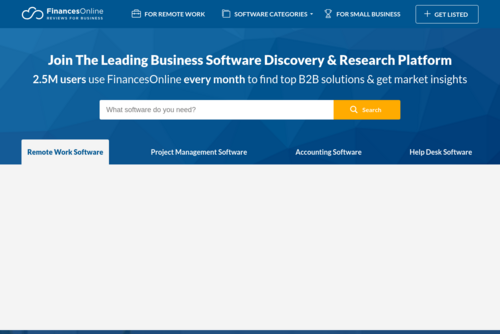Many accounting software are more similar than different in terms of features. Standard modules include general ledger management, invoicing, and payment processing.
So aside from key features, when choosing the best accounting software for small business in 2017 consider these other aspects: ease of use; compatibility and integration; and security. More importantly, prefer a SaaS model if you’re a small player.
SaaS accounting gives you flexibility like customizing processes, integrating third-party apps, and scaling pricing based on your current needs.
In this article, let’s compare five top accounting software that are most useful for small business, which includes freelancers, consultants, micro-enterprises, and fairly established small companies.
Top 5 Accounting Software for Small Business in 2017 - Financesonline.com

From https://financesonline.com 2522 days ago
Who Voted for this Story
Subscribe
![]() “Yes, it's quite the new term Martin. But it's been around for a while....”
“Yes, it's quite the new term Martin. But it's been around for a while....”
![]() “Automation is a broad topic but I like ConvertKit for emails and SocialBee...”
“Automation is a broad topic but I like ConvertKit for emails and SocialBee...”
![]() “Lisa: I have not heard about the expression, "engagement...”
“Lisa: I have not heard about the expression, "engagement...”
![]() “Adam: Do you have a favorite tool at the moment?...”
“Adam: Do you have a favorite tool at the moment?...”
![]() “Adam: I have to look into this issue in the near future... ;)...”
“Adam: I have to look into this issue in the near future... ;)...”








Comments